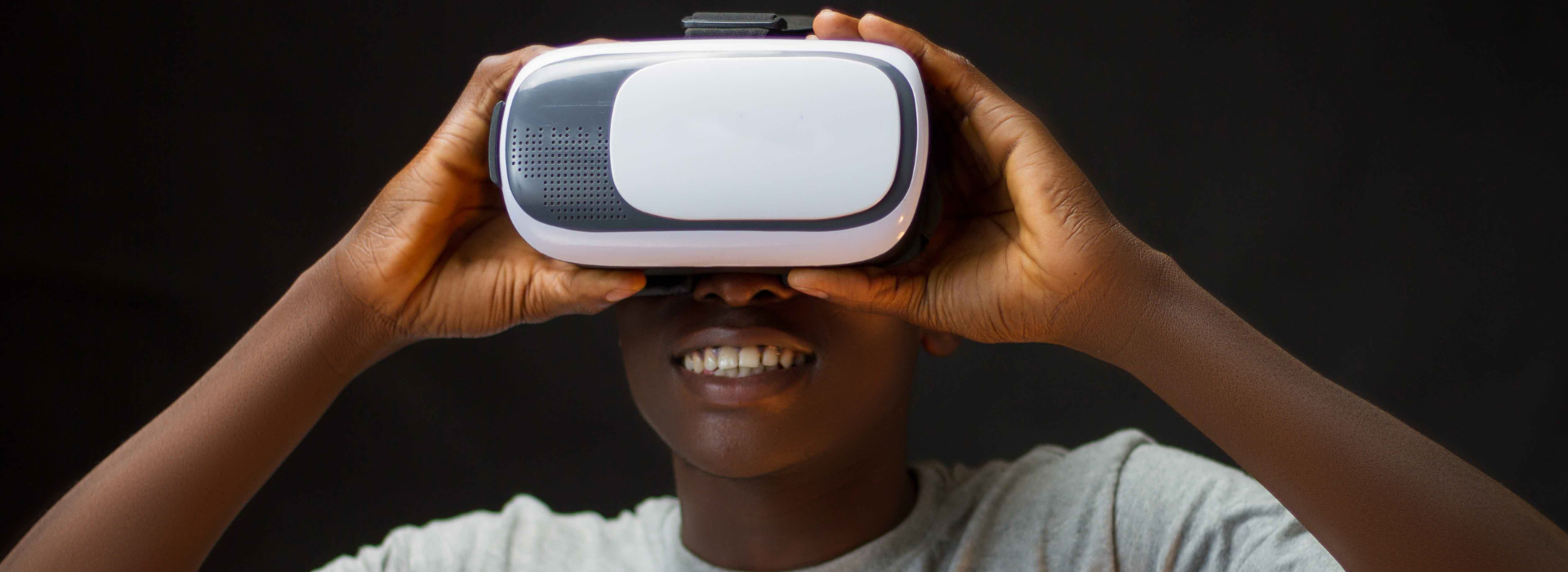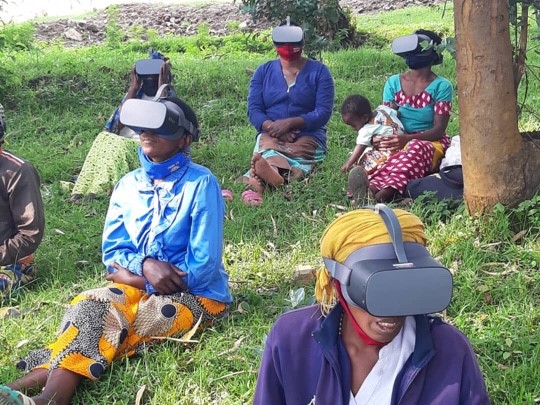Digital tools for virtual hands: How VR training can help the smallest businesses grow
September 8, 2022 | By Sophie Hares
Until a few years ago, tech entrepreneur Natalie Miller’s only virtual reality experience was a white-knuckle digital rollercoaster ride.
The Virginia native had spent much of her career working on ways to use technology to help organizations serve the poorest communities in emerging markets. But a chance meeting with VR whiz Bryan Crosswhite quickly convinced her that VR was the next big thing, especially when it came to training people around the world.
A big problem with training sessions anywhere is people become bored or distracted by their phones. But training is the key for many nonprofits and social enterprises looking to put people on paths to prosperity. Miller and Crosswhite realized that they could use VR tech — which typically uses a headset to immerse users in a 360-degree virtual experience — to create learning experiences that people would find more engaging and make the training easier to recall.
Deciding to join forces, they launched XRGlobal in 2019. The company develops VR training programs for both development organizations and companies working in health care, agriculture, education and finance.
Soon, this technology could even help some of Brazil’s most marginalized people embrace the opportunities of the digital age as XRGlobal will trial its VR training with microbusinesses in the country’s favela communities. This effort is part of a larger program launched by Mastercard’s Strive Community initiative to support the digitalization of 500,000 favela-based microbusinesses in Brazil in order to build their resilience and enable their growth.

Women in Rwanda in a virtual reality training session created by XRGlobal, which is bringing the tech to microentrepreneurs in Brazil's favelas. (Photo courtesy of XRGlobal)
Once the realm of science fiction and more recently high-end entertainment, VR is on the cusp of becoming an everyday experience for people around the world as major companies, universities, schools, nonprofits and NGOs start embracing the technology, Miller says. A 2019 PwC report calculated the impact of training in VR and augmented reality (a less immersive digital experience) on global gross domestic product, predicting it will grow from $8.8 billion that year to $294 billion by 2030.
A widely cited study by the National Training Laboratory in the U.S. shows VR training boosts knowledge retention, with people remembering 75% of what they learn, compared to just 5% in a lecture. A study conducted by PwC that compared classroom, online and virtual training in soft skills found VR learners completed the training four times faster than the classroom cohort — and reported feeling far more confident in applying the training than the classroom and online learners.
Since its founding three years ago, XRGlobal has used VR to train more than 75,000 people in Rwanda, Kenya, South Africa and Mozambique. It’s helping microentrepreneurs become more financially literate, smallholder farmers increase the value of their crops and young people learn motorcycle maintenance to find jobs or open their own repair shops. Rescue workers are using VR to comb through the wreckage of a collapsed building. A business coach virtually submerges entrepreneurs underwater to demonstrate how they cope with pressure.
“With VR you’re immersed, and you have deeper, more authentic, experiential learning,” Miller says.
Brazil’s favelas, home to 17.1 million people, are centers of small-scale entrepreneurship – 41% of residents own a business, according to a report from the research institute Data Favela. But many lack access to capital, the skills and tools for financial management, pricing strategies and digital marketing. Fewer than a quarter were able to transition their businesses online during the COVID-19 pandemic.
XRGlobal, along with seven other companies, will share $1 million in grants from Strive Community, the global initiative launched last year by the Mastercard Center for Inclusive Growth and Caribou Digital to support small businesses globally through digital and data-first programs.
The VR training modules will support microenterprise owners in favelas in understanding what it means to be an entrepreneur and learning business skills such as cash flow management, pricing techniques and digital marketing. Some will join live mentorship sessions through XRGlobal’s VR multiuser events that enable participants to interact with one another and even “teleport” to locations such as a bank or any in-the-field experience.
This ambitious initiative can have an impact far beyond boosting the skills of individual business owners. “These microenterprises generate jobs and essential income for millions of people,” says Luz Gomez, the center’s regional vice president. “Delivering the right digital tools in an engaging way will help these entrepreneurs grow and, in turn, help their communities thrive.”
It might still be in its infancy outside the U.S. and Europe, but VR has enormous potential to create more effective, engaging learning experiences in communities that might have little access to even mainstream classroom-based training while helping organizations make the most of their funding, Miller says.
“If you think how many billions go into training in emerging markets and how much is wasted due to a lack of real knowledge transfer and retention, the impact, if done effectively, can be massive.”